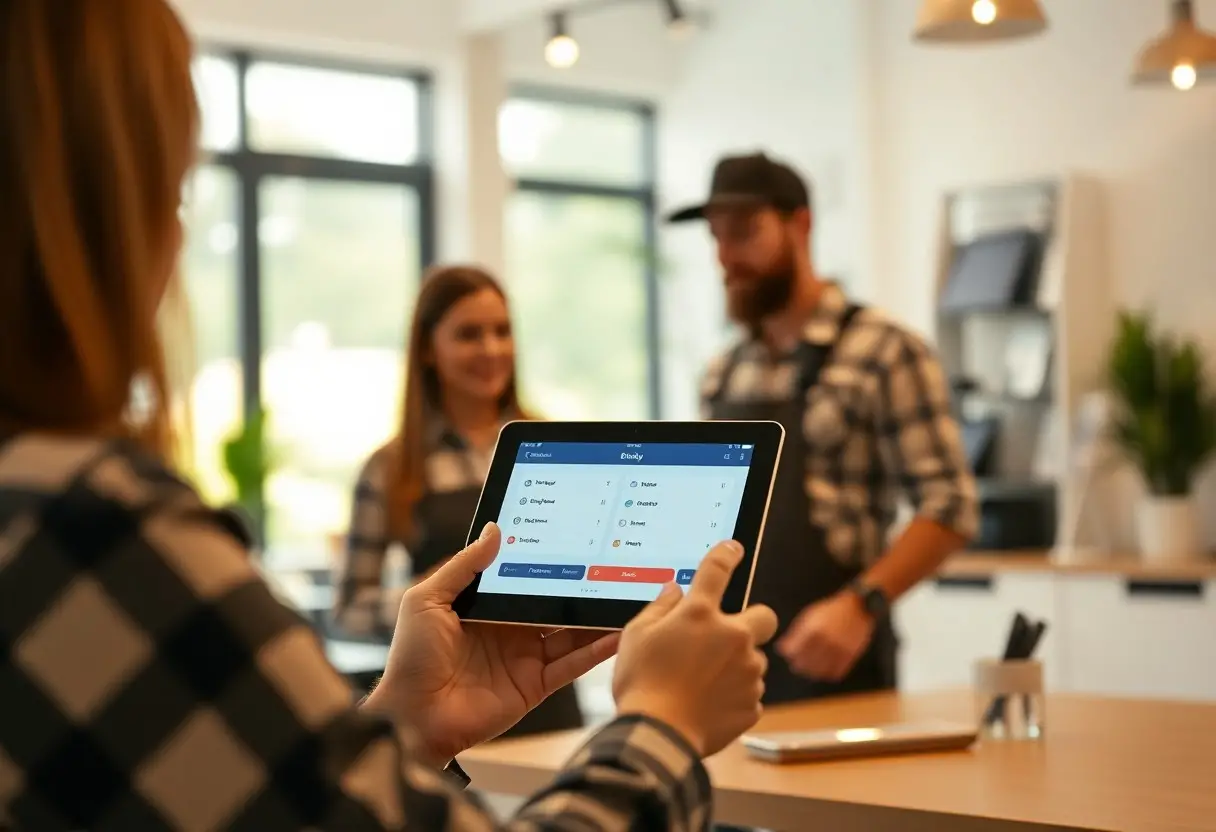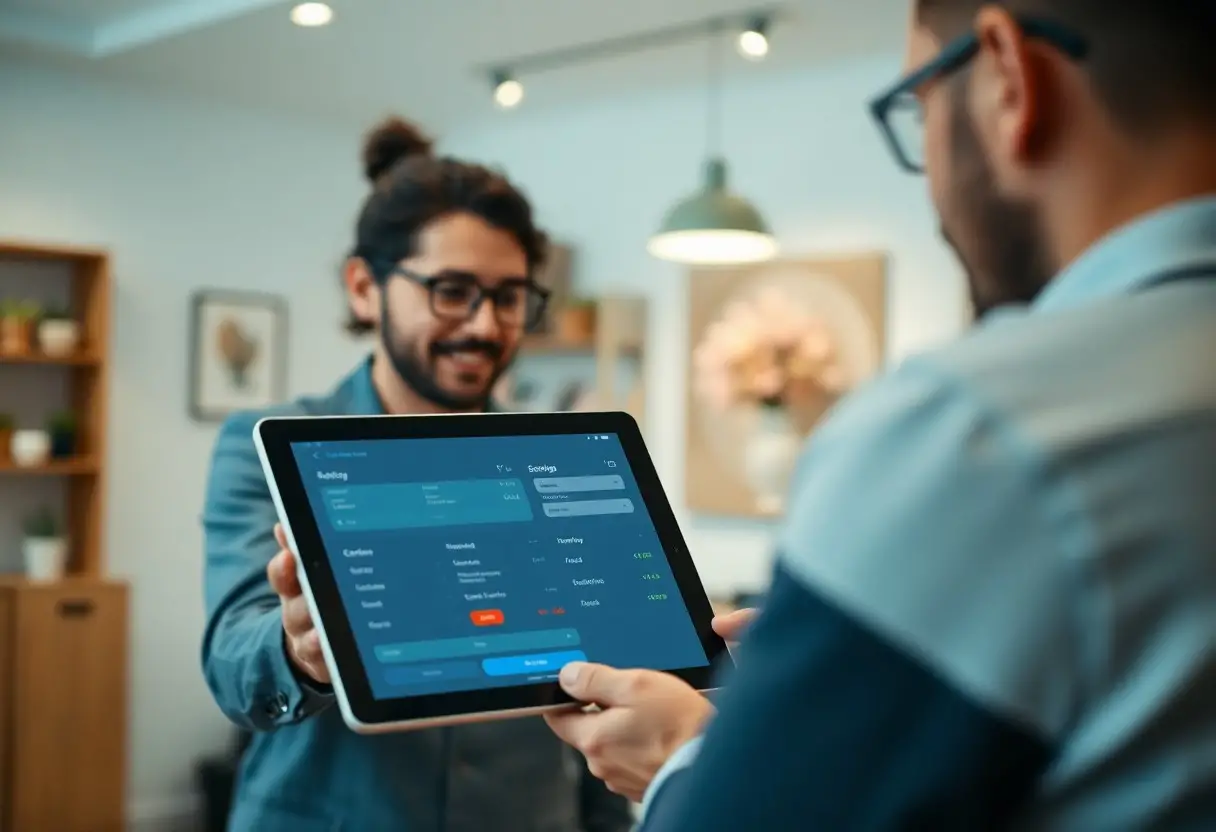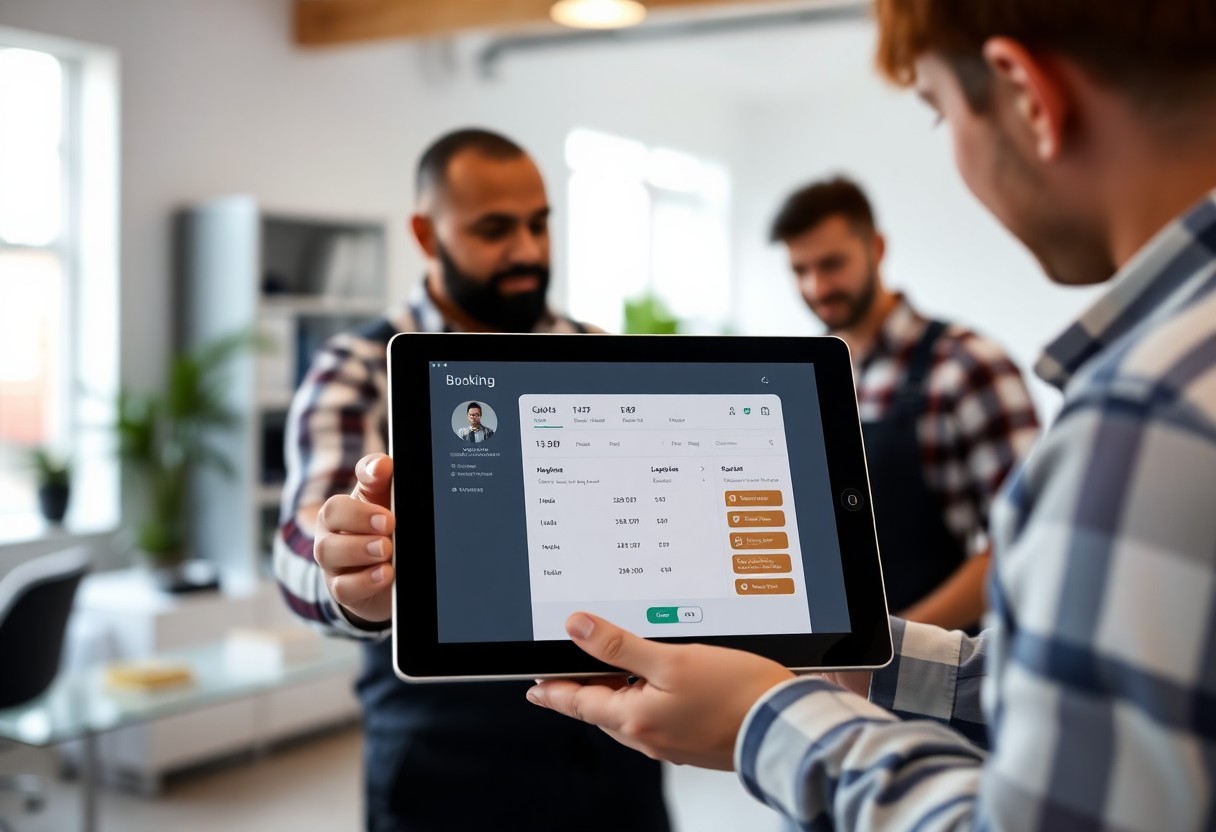With the rising competition in local services, implementing an efficient booking system can significantly enhance your customer experience and streamline your operations. You need to focus on user-friendly interfaces, automated reminders, and integration capabilities to boost your business’s efficiency. An effective booking system not only improves customer satisfaction but also minimizes the risks of double bookings and scheduling conflicts. Investing time in choosing the right system will empower you to manage your appointments better and ultimately drive your success in the local market.

Understanding Booking Systems
For any local service-based business, having an efficient booking system is crucial for managing your appointments and customer relations. These systems streamline the process of arranging appointments, enabling clients to easily schedule times that suit their needs while allowing you to manage your schedule effectively. Investing in a reliable booking system not only optimizes your operational efficiency but also enhances customer satisfaction, as it reduces waiting times and minimizes scheduling conflicts.
Definition and Importance
Below are key aspects of what booking systems entail and their significance in modern business practices:
| Definition | A booking system is a software platform that enables businesses to handle appointment scheduling. |
| Importance | It aids in maximizing productivity by automating the scheduling process, thus saving time. |
| Customer Experience | Improves customer experience with real-time availability and instant confirmations. |
| Data Management | Facilitates data collection for analyzing customer preferences and behaviors. |
| Flexibility | Offers businesses flexibility to adjust schedules easily when necessary. |
Types of Booking Systems
Systems can vary significantly based on the type of service you offer and the specific needs of your business. Among the most common booking systems, you will find:
| Online Booking Systems | Allow customers to book services through your website or mobile app. |
| Phone Booking Systems | Require clients to call your business to set appointments manually. |
| Point of Sale Integrated Systems | Combine booking and payment processing for seamless transactions. |
| Social Media Booking Systems | Enable clients to book appointments through social media platforms. |
| Mobile Booking Apps | Specialized apps designed for scheduling services on smartphones and tablets. |
Also, selecting the correct type of booking system is vital for your success as a local service provider. Here are some important factors to consider when evaluating your options:
- Ease of Use – The interface should be intuitive for both you and your customers.
- Integration – It should integrate smoothly with other software systems you already use.
- Customization – Allows you to tailor the booking experience based on your specific services.
- Customer Support – Ensure there’s good customer support when issues arise.
- Cost Effectiveness – The system should provide good value relative to its features and benefits.
Thou should consider these variables seriously, as your choice will affect operational efficiency and customer engagement in profound ways.
Key Features of Efficient Booking Systems
It is necessary to understand the key features that make an efficient booking system for local services. When choosing the right platform, ensure it includes the following elements to enhance your service delivery:
- Real-Time Availability: Allows customers to see and book available slots immediately.
- Automated Confirmation Emails: Sends immediate confirmations to customers upon booking.
- Reminders and Notifications: Sends timely reminders to reduce no-show rates.
- Customizable Scheduling: Lets you set specific times and dates that suit your business needs.
- User Management: Provides tools to manage customer profiles and booking history efficiently.
- Reporting and Analytics: Offers insights into your booking patterns to optimize your services.
Knowing these features will empower you to choose a booking system that addresses your unique requirements effectively.
User-Friendly Interfaces
An efficient booking system must offer a user-friendly interface that enhances the customer experience. A straightforward layout, easy navigation, and clear call-to-action buttons are vital for customer satisfaction. When customers face a complicated booking process, they’re more likely to abandon their reservations, which could translate into lost business for you.
Your booking system should be designed with the end-user in mind, ensuring that functionalities like searching for services, choosing dates and times, and completing their booking are intuitive. Aim for a responsive design so that clients can easily make bookings from their smartphones, tablets, or desktops. A smooth user experience directly impacts your service reputation and encourages repeat business.
Integration with Payment Solutions
Below is one of the most significant aspects of a booking system: its ability to integrate with various payment solutions. This integration not only streamlines the checkout process but also enhances security and customer trust. You should look for systems that support multiple payment options, such as credit cards, digital wallets, and other online payment methods.
With an integrated payment solution, you can provide a seamless experience for your customers. Integration allows for secure transactions, reducing the risk of fraud while giving your customers the flexibility to choose their preferred payment method. Additionally, automated financial reporting becomes simpler, allowing you to track sales and revenue effortlessly. Ensuring that your chosen booking system includes robust payment solution integrations can lead to better cash flow management and improved customer satisfaction.

Benefits for Local Service Providers
Improved Customer Experience
Against the backdrop of fierce competition in local markets, providing an exceptional customer experience has never been more vital. An efficient booking system allows you to streamline the scheduling process, offering your clients the convenience of online bookings, appointment reminders, and instant confirmations. This seamless interaction not only elevates customer satisfaction but also builds trust, leading to repeat business and positive word-of-mouth referrals that are crucial for your growth.
Time and Resource Management
Management of your time and resources can make or break your local service business. By employing an efficient booking system, you can effectively allocate your schedule, minimizing overbooking or missed appointments that lead to lost revenue. Your resources, whether they are employees or equipment, can be utilized more effectively, enhancing productivity and ensuring that you remain competitive in your local market.
Benefits of an optimized booking system extend beyond mere time savings. You will notice increased operational efficiency, as your staff will spend less time managing appointments and more time focusing on delivering high-quality services. Additionally, your customer follow-ups and client communication can be automated, which means that your team can dedicate their efforts where they matter most, ultimately driving growth and success in your service offerings.
Choosing the Right Booking System
Your choice of a booking system can significantly influence the efficiency of your local services. Finding the right fit not only streamlines your operations but also enhances customer satisfaction. With various options available in the market, it is vital to invest time in understanding your specific requirements and the features that different systems offer. This decision impacts everything from appointment scheduling to payment processing, so ensure that the system aligns with your business goals.
Assessing Your Business Needs
Before you explore into the myriad of booking systems on the market, you need to assess your business needs thoroughly. Consider the size of your operation, the volume of appointments you manage, and the specific services you offer. Identify any unique requirements, such as integration with existing software or mobile accessibility. By having a clear understanding of what your business needs, you set a solid foundation for selecting the most suitable booking system.
Analyzing Provider Options
Assessing the range of available providers is an integral part of the selection process. Take the time to research and compare the features offered by different booking systems. Look for user-friendly interfaces, flexible configuration options, and customer support services. Ensure that the system can scale with your business in case of growth. Additionally, consider the pricing structures to find a balance between cost-effectiveness and comprehensive features.
System capabilities vary significantly between providers, so it’s vital to gauge which features are non-negotiable for your operations. Owners should focus on aspects like automated reminders, payment processing options, and reporting capabilities. Some systems may also offer integrations with marketing tools to streamline your outreach efforts. By evaluating each provider’s offerings against your list of vital features, you can minimize the risk of encountering any disadvantages in the long run and ensure a smoother workflow.
Implementation Strategies
Once again, implementing an efficient booking system for your local service business requires careful planning and strategic execution. Begin by assessing your specific needs and the unique demands of your clientele. This enables you to choose a system that can handle scheduling complexities, such as varying service durations, staff availability, and last-minute adjustments. Once you have selected the right system, seamlessly integrate it with your existing processes to ensure that it complements your workflow. Involve your team in this transition to garner support and facilitate an easier adoption of new practices.
Additionally, it’s important to communicate effectively with your customers about the changes you are making. Clear communication regarding new features, benefits, and how they can interact with your booking system can alleviate any confusion. Set realistic timelines for implementation and be prepared to adapt as necessary. Ensure that you have a backup plan in place to handle any potential hiccups during the transition phase to maintain service quality and customer satisfaction.
Training and Support
About providing your team with proper training and ongoing support, this is a fundamental aspect of the successful adoption of any booking system. Develop comprehensive training sessions to introduce your employees to the new software, covering everything from basic functionalities to advanced features. Encourage hands-on practice and provide user manuals or resources that can serve as a reference point. Training should not just be a one-time event; instead, incorporate refresher courses and updates as the software evolves. The more comfortable your staff is with the system, the more efficient their service will be, ultimately enhancing customer satisfaction.
Moreover, establishing a reliable support system is pivotal. Ensure that your team knows who to contact for technical issues or operational questions. You might consider working closely with your software provider to access customer support resources and troubleshooting assistance. Regular feedback loops, where employees can voice their concerns or suggestions regarding the software, will contribute to more efficient operations and empower your staff to provide the best service possible.
Monitoring and Optimization
Any effective system requires continuous evaluation and improvement to ensure it meets your business objectives. After your booking system is up and running, regularly monitor its performance through metrics, such as booking rates, customer satisfaction scores, and system downtime. This data is invaluable in helping you identify areas for improvement or addressing any recurring issues that may arise. Use this insight to optimize your processes, making adjustments to your practices, system configurations, or even training protocols as needed. Investing time in regular assessments can significantly enhance the effectiveness of your booking system.
Monitoring your booking system effectively can yield positive results for your service business. By paying close attention to usage patterns, customer feedback, and operational efficiency, you can make informed decisions that foster growth and enhance user experience. Understanding how various features are utilized will also allow you to identify potential bottlenecks and make focused adjustments that improve both customer engagement and staff productivity. Regularly revisiting your implementation strategy ensures that your booking system evolves alongside your business, adapting to shifts in demand and overall market trends.
Case Studies of Successful Implementation
Keep in mind that exploring case studies of local service providers who have successfully integrated efficient booking systems can give you valuable insights. Here are some illustrative examples showcasing the positive changes brought about by technology:
- Beauty Salon X: Increased bookings by 40% within three months of implementing an online booking system.
- Plumbing Services Y: Reduced cancellations by 25% thanks to automated reminders sent to clients before appointments.
- Fitness Studio Z: Achieved a 30% higher attendance rate by incorporating a mobile app for easy class scheduling.
- Cleaning Services A: Saw customer satisfaction ratings soar to 90% after offering a user-friendly online booking experience.
- Local Taxi Service B: Enhanced response time for bookings by 50% through an integrated GPS system linked to their booking platform.
Local Service Providers’ Experiences
Any local service provider can benefit from the experiences of others who have embraced technology. For instance, many small businesses report that having an online booking system has not only streamlined their operations but also allowed them to connect with a wider audience. Your clients will appreciate the convenience of scheduling and managing their appointments from their smartphones or computers, paving the way for more efficient interactions and better retention rates.
Moreover, service providers often note a significant drop in no-shows. By utilizing features like automated reminders, they’ve been able to maintain direct communication with their customers, ensuring that appointments are honored. Consequently, this leads to improved revenue, allowing you to reinvest in your services and further enhance customer satisfaction.
Measurable Outcomes
With effective booking systems, you’ll witness measurable outcomes that speak volumes about your operational efficiency. Many local service providers tracking performance post-implementation have observed not only increased revenue but enhanced customer loyalty as well. Statistically, businesses have reported improvements as high as 70% in appointment visibility, significantly affecting their overall performance and profitability.
A recent survey conducted among local service providers using efficient booking systems revealed that 85% experienced a marked improvement in customer feedback and ratings. In addition, integrations of these systems have led to higher employee satisfaction, with 63% of staff enjoying streamlined workflows and reduced administrative burdens. Ultimately, your choice of a booking system not only influences your service delivery but reinforces your brand in the market. By investing in an efficient booking system, you set the stage for ongoing success and happier clientele.
Conclusion
Now that you have explored the landscape of efficient booking systems for local services, you understand their importance in enhancing your business operations and improving customer satisfaction. By choosing the right system, you can streamline the appointment process, reduce no-shows, and offer your clients a seamless experience from start to finish. Investing in a system that caters specifically to your needs not only saves you time but also allows you to focus on providing top-notch services to your clients.
Moreover, as you implement an effective booking solution, you’ll discover new opportunities for engagement and growth. With features like automated reminders, scheduling flexibility, and user-friendly interfaces, you can cultivate stronger relationships with your customers while maximizing your operational efficiency. Ultimately, the right booking system can significantly transform how you manage your local services, helping you stay competitive in today’s dynamic market.




